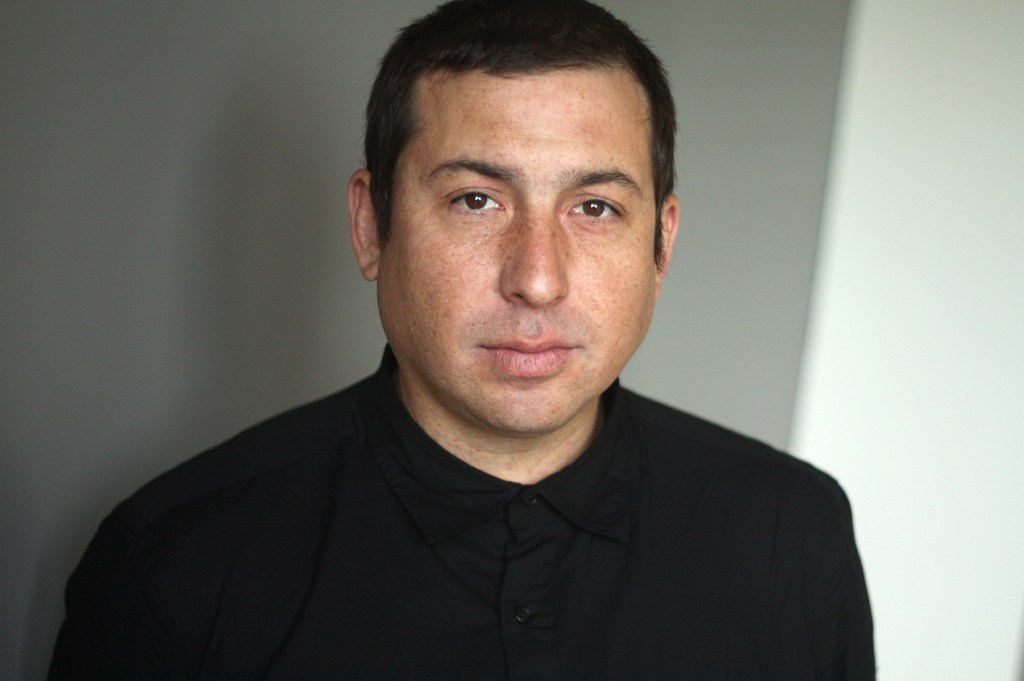In 2018, shortly before the release of his acclaimed debut novel “There There,” author Tommy Orange was in a Penguin Random House warehouse near Baltimore, signing copies of his book. He was listening to a Spotify playlist based on Radiohead’s “There There,” the novel’s namesake, when “Wandering Star” by Portishead started to play. In that moment, Orange knew that song would be the title of his next book — and that it would be a sequel.
Six years later the author is releasing “Wandering Stars,” an intergenerational exploration of trauma’s lasting impact, identity and family. The story hinges on teenager Orvil Red Feather and his family in the aftermath of the shooting that takes place at the end of “There There,” at a powwow in Oakland. Similar to “There There,” the story is told by an ensemble of characters and from different perspectives.
“Orvil’s story was the one that seemed most compelling to me,” says Orange of deciding to center the character, and his recovery from the shooting, in the narrative. “There were layers of metaphor and analogy that were related to history, and the way that we think about history affecting us. The fact that he was wearing old regalia and practicing his culture, native culture; that disruption in his life, and him recovering from it. There was a lot to write into.”
While Orange picks up the story shortly after the haunting ending of “There There,” his second book also serves as a prequel. The first half of “Wandering Stars” begins more than a century earlier, tracing the Star family lineage back to the Sand Creek Massacre of 1864. The first Star to be introduced is a Cheyenne survivor of the massacre, who ends up at the Fort Marion prison castle in Florida run by military officer Richard Henry Pratt. The goal of the program was assimilation, and erasure of Indigenous culture and traditions.
“I never wanted to write historical fiction, because native people have been trapped in history for a long time,” says Orange, himself an enrolled member of the Cheyenne and Arapaho tribes of Oklahoma. “A lot of our depiction is just historical. When we teach native history in school, it’s like, the Pilgrims — and then we never check back in with what’s going on with native people.”
During his European tour for “There There,” Orange came across a newspaper clipping at a museum in Sweden that detailed the Southern Cheyenne tribe’s connection to Fort Marion, which became the blueprint for government-run “Indian boarding schools.”
“That just seemed like such a crucial piece of history, and that my tribe was sort of the test dummies, or the seed of what would become the boarding schools were these prisoners of war,” says Orange, adding that he wasn’t initially sure how that piece of history would connect to the story of “There There.” Through further research, Orange came across a list of prisoner names, which included “Star” and “Bear Shield” — a family name from “There There.”
“I realized in a single moment that this would be the family line, and the family line will have gone through all of this strife to end up in Oakland,” says Orange. “There was a lot of figuring out how to get there.”
“Wandering Stars” follows the family line through modern day mid-pandemic, bringing the story to a hopeful conclusion. “I felt really helpless when I was finishing the ending of ‘There, There.’ It’s kind of a horrific ending, and the end of 2016 felt that way to me,” says Orange. “I think this time around, the ending was hopeful. I needed it to be.”
“There There” was a finalist for the 2019 Pulitzer Prize, and Orange notes that the success of his first book introduced “new voices and pressures” when writing “Wandering Stars.” Notably, the “spectacle of the sophomore effort” and the judgment that often entails. “Some people think success creates confidence, and that may be true for some people,” he says. “But not for me. It’s the same level of doubt.”
Orange, who’s in his early 40s and currently lives in Oakland with his family, wasn’t a reader growing up, and only started writing after graduating from college with a degree in sound engineering. He went on to earn his MFA in creative writing in 2016 through the Institute of American Indian Arts, where he currently serves as a mentor.
“The then-director of the school said if I publish a book, he’ll give me a teaching job. And that was kind of all I wanted from ‘There There’ — to get a teaching job and be able to live and breathe writing in some capacity,” says Orange, adding that his current role involves working with one or two students a semester to refine their manuscripts.
Ahead of the book’s Feb. 27 release, Orange has already sold and is working on his third novel. While “Wandering Stars” marks the conclusion of the characters that Orange has already introduced readers to in his work, there are more stories waiting to be told.




